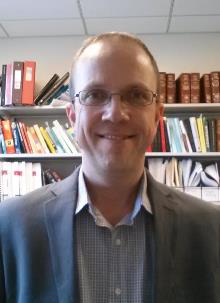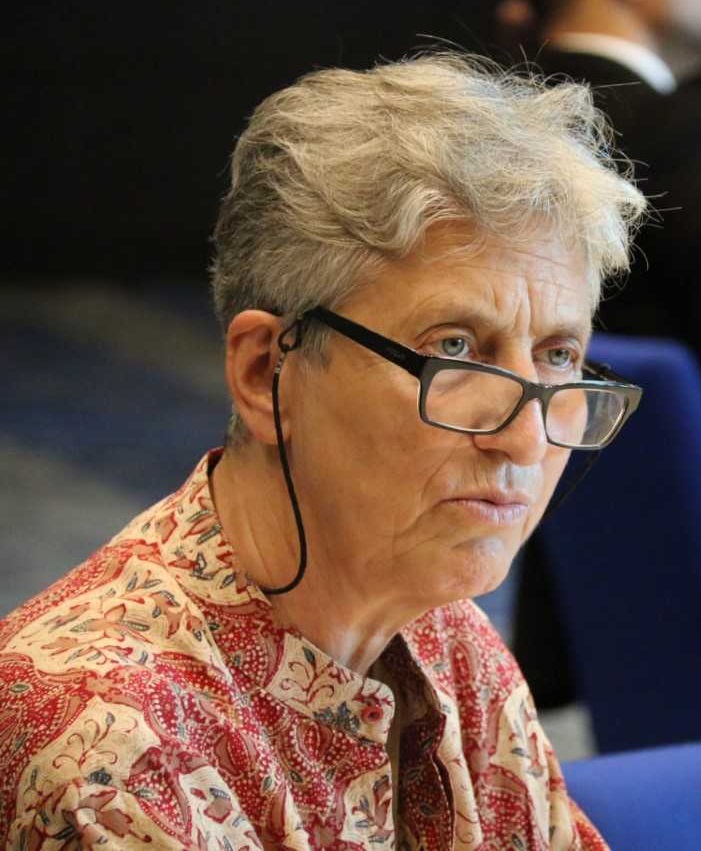
This colloquium deepens our knowledge of Southeast Asia as a region from transnational perspectives by bringing outstanding scholars from around the world to the Michigan State University campus in spring 2018. Through lectures based on their cutting-edge research, these scholars will illustrate innovative ways to understand history, culture, society, as well as religion in Southeast Asia beyond national and regional boundaries as it relates to the mass killings and incarcerations in Indonesia in 1965 -1966.
 Tuesday, March 13, 2018
Tuesday, March 13, 2018
4:00 p.m.
303 International Center
The 1965-1966 mass killings in Indonesia which brought General Suharto to power were one of the decisive events of the Cold War in Asia. While most scholars have focused attention on the mechanics of the killings themselves, they have paid less attention to the Western response to them, and the ways that the United States and other Western powers helped to shape the conditions under which the army would consolidate its power and to reorganize Indonesia’s political economy at a crucial moment in the global Cold War.
Brad Simpson is Associate Professor of History and Asian Studies at the University of Connecticut. He is the founder and director of the Indonesia and East Timor Documentation Project at the National Security Archive, which has declassified thousands of pages of classified U.S. documents on Indonesia and human rights. Simpson is currently writing a global history of the idea of self-determination and an international history of authoritarian rule in Indonesia.
Friday, February 9, 2018
3:00 p.m.
201 International Center
This lecture, like the recently published book on which it is based, examines one of the largest and swiftest instances of mass killing and incarceration in the twentieth century—the shocking anti-leftist purge that gripped Indonesia in 1965 - 66, leaving some five hundred thousand people dead and more than a million others in detention. Challenging conventional narratives that portray the violence as arising spontaneously from religious, cultural, and social conflicts, the lecture argues that it was instead the product of a deliberate campaign led by the Indonesian Army. The lecture also details the critical role played by the United States, Britain, and other major powers in facilitating the mass murder and incarceration – and the more than 50 years of silence and inaction that followed. In contrast to prevailing approaches, the lecture seeks to locate Indonesia’s experience in a comparative historical framework. In doing so, engages wider theoretical debates about the logic and legacies of mass killing and incarceration, as well as the histories of human rights, U.S. foreign policy, and the Cold War.
Geoffrey Robinson is a Professor of History at UCLA where he teaches and writes about political violence, genocide, human rights, and mass incarceration. He received his Ph.D. from Cornell University. Robinson has published many main works. His latest, The Killing Season: A History of the Indonesian Massacres, 1965-66 (Princeton University Press, 2018). Before coming to UCLA, Robinson worked for six years at Amnesty International's Research Department in London, and in 1999 he served as a Political Affairs Officer with the United Nations in Dili, East Timor. He is currently co-editing a book of photographs and images related to the mass violence of 1965-66 in Indonesia.
 Wednesday, April 11, 2018
Wednesday, April 11, 2018
4:00 p.m.
303 International Center
For decades, public challenges to the official narrative of Indonesia’s state-orchestrated 1965-66 massacres that killed more than 500,000 people have been the country’s most visceral taboo. In April 2016, the Indonesian government of President Joko “Jokowi” Widodo eased the official chokehold on discussion of the killings and raised hopes that he would begin a process toward meaningful accountability for those atrocities.
Two years later, those hopes have been dashed by a backlash by a revival of anti-Communist propaganda by paramilitary groups, senior military officials and Islamists that have portrayed tentative discussions about accountability as a veneer for a state-destabilizing and anti-Islam revival of the Communist Party of Indonesia. Civil society activists pursuing accountability have been targeted with harassment and intimidation, and the politicization of the issue in the run-up to what will be a fiercely-contested presidential election in 2019 has rendered accountability an unmentionable political third-rail.
Phelim Kine is the deputy director of the Asia division at Human Rights Watch (HRW). Mr. Kine, a former Jakarta-based foreign correspondent, supervises HRW’s work on Indonesia and is part of the HRW team pushing for accountability for the massacres of 1965 - 1966.
 Wednesday, April 24, 2018
Wednesday, April 24, 2018
4:00 p.m.
303 International Center
The International People’s Tribunal on the 1965 Crimes Against Humanity in Indonesia concluded that the propaganda campaign that the army waged against the PKI amounted to persecution through propaganda as a crime against humanity. In this lecture, Saskia Wierenga will outline the elements of the propaganda campaign, its religious, nationalist and sexual components, as well as its mechanics. Special attention will be given to the campaign against the women’s movement Gerwani, the first sexual moral panic.Though the campaign was unprecedented, it fed on earlier tensions in society. This lecture spans the period of the first nationalist uprisings in 1926 till the present time, when a new sexual moral panic is created, this time focusing on the LGBT community.
Saskia Wierenga occupies the Chair of Women’s Same-Sex Relations Crossculturally at the University of Amsterdam. She is also the Chair of the IPT 1965, the Foundation International People’s Tribunal on the 1965 Indonesian genocide. She has published more than 30 books and hundreds of articles on women’s empowerment and agency worldwide. She is the author of Heteronormativity in Asia (2015) and the forthcoming volume, Propaganda and the Genocide in Indonesia; Imagined Evil, (2018).
This colloquium is sponsored by the Asian Studies Center with funding from the International and Foreign Language Education Office, U.S. Department of Education, Center for Gender in Global Context, Department of Political Science, James Madison College, Jewish Studies, Muslim Studies Program, Peace and Justice Studies